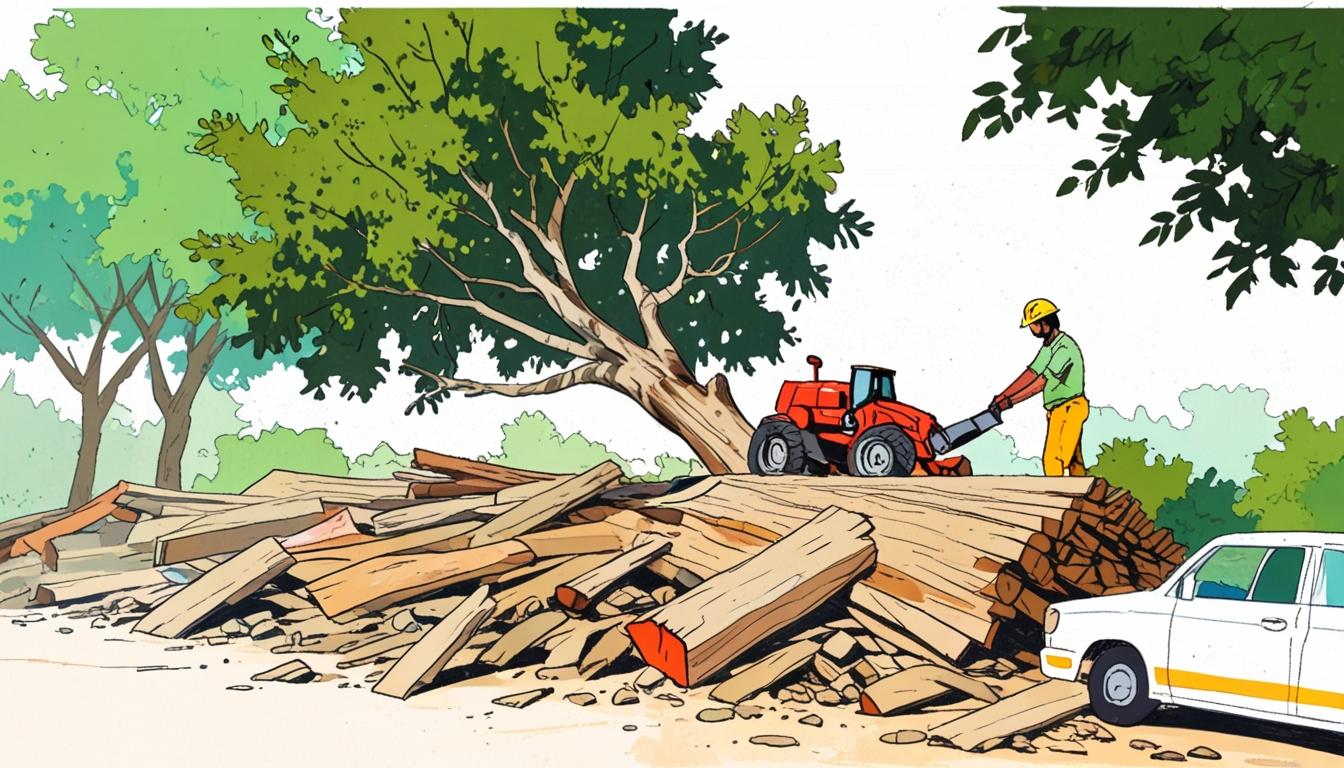A group of environmental activists in Chandigarh has condemned the unauthorised use of forest land and tree felling near the city’s Rock Garden, demanding immediate action and transparency from authorities to protect local biodiversity amid escalating heatwaves and climate concerns.
Environmentalists Express Concern Over Illegal Tree Felling and Forest Land Misuse Near Chandigarh’s Rock Garden
Chandigarh, 19 April 2025 – A group of environmental activists from the Tricity region has raised serious concerns regarding the felling of trees and unauthorised use of forest land in the vicinity of Chandigarh’s famed Rock Garden. The activism has spotlighted alleged violations of environmental regulations and forest protection laws in a region adjacent to the Punjab and Haryana High Court.
A delegation of environmentalists recently met Chandigarh Advisor and Chief Secretary Rajiv Verma to urge the administration to take immediate corrective measures. The activists detailed their apprehensions about the conversion of designated forest land for non-forest uses, a move they say contravenes guidelines issued by the Ministry of Environment, Forest and Climate Change (MoEF&CC) and undermines local biodiversity. Their concerns are set against the backdrop of an escalating climate crisis, with the India Meteorological Department (IMD) issuing heatwave alerts for the region.
The land in question comprises 0.2467 hectares near the Rock Garden, which had been officially designated for road widening and straightening projects aimed at easing vehicular congestion. This allocation included two segments measuring 0.0272 and 0.2195 hectares respectively. While the land diversion was granted conditional approval by both the MoEF&CC and the Punjab and Haryana High Court, original clearances explicitly forbade any permanent construction or activities unrelated to forest conservation.
Environmentalists, however, claim that the land is currently being used as an unauthorised kutcha (temporary, unpaved) parking area, an activity inconsistent with the Forest (Conservation) Act, 1980, and the stipulated terms of clearance. They also criticised the Chandigarh administration for proceeding with tree felling without making public any tree census or environmental impact assessment (EIA) reports. According to prevailing environmental guidelines, compensatory afforestation should involve planting approximately 272 trees to offset the loss of green cover on the affected land, yet no such afforestation plan has been disclosed or executed to date.
The delegation emphasised the critical ecological functions trees perform, particularly during periods of extreme heat. “Every tree acts as a natural safeguard against soaring urban temperatures and air pollution,” one activist noted, highlighting the importance of maintaining green cover amid the intensifying effects of climate change.
Among the demands being pressed is an immediate cessation of all unauthorised use of forest land, followed by the public release of all relevant documentation including the tree census, EIA reports, and afforestation plans. The group also called for the restoration of green cover utilising native tree species suitable for the region.
The delegation, comprising prominent environmental advocates Samita Kaur Mangat, Pavila Bali, Pooja Sharma, and Amandeep Singh, underscored that adherence to environmental regulations must remain a fundamental element of urban planning. “Environmental compliance must be a non-negotiable pillar of urban planning,” they stated.
The issue has garnered attention from political circles as well. Earlier engagements included a meeting with Member of Parliament Manish Tewari, who assured activists that he would raise the matter in the Indian Parliament. Following this, the concerns have been formally presented to Chandigarh’s administrative leadership in anticipation of prompt action.
Environmentalists framed the situation as a critical test of governance, not merely a logistical matter related to road infrastructure and traffic management. “As heatwaves intensify and ecological systems face increasing stress, environmentalists urge the administration to lead by example and uphold sustainable development practices,” said one member of the delegation.
The developments surrounding the Rock Garden forest land misuse highlight ongoing tensions between urban development and environmental conservation in rapidly urbanising areas. The outcome of this case may have wider implications for environmental governance and policy enforcement in Chandigarh and beyond.
Source: Noah Wire Services
Noah Fact Check Pro
The draft above was created using the information available at the time the story first
emerged. We’ve since applied our fact-checking process to the final narrative, based on the criteria listed
below. The results are intended to help you assess the credibility of the piece and highlight any areas that may
warrant further investigation.
Freshness check
Score:
9
Notes:
The narrative references events and statements dated 19 April 2025, matching the current date, indicating timely reporting with no signs of recycled or outdated content.
Quotes check
Score:
8
Notes:
Direct quotes from activists and officials appear original with no identifiable earlier sources online; likely first publication of these statements but no contradicting records found.
Source reliability
Score:
7
Notes:
The narrative originates from a news feed aggregated by Google News, lacking a named, established publication. Without a direct link to a reputable outlet like BBC or Reuters, reliability is moderate but plausible due to specific local detail and named individuals.
Plausability check
Score:
9
Notes:
Claims align with common issues of urban development impacting forest land, referencing official bodies (MoEF&CC, IMD, Punjab and Haryana High Court) and known environmental regulations, making the account plausible though lacking external independent verification.
Overall assessment
Verdict (FAIL, OPEN, PASS): PASS
Confidence (LOW, MEDIUM, HIGH): HIGH
Summary:
The narrative is current and appears freshly reported with original quotes and plausible content. Although the precise publication source is not a major recognised outlet, the inclusion of verifiable official references and named activists supports a high confidence in factual accuracy.













